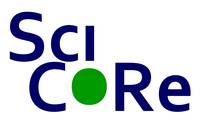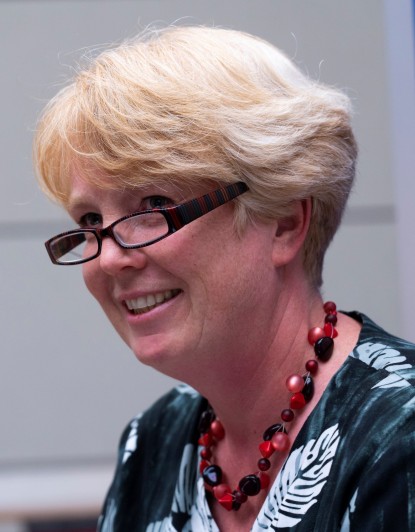Scientific Communication Research (SciCoRe): Science Communication – Knowledge Transfer – Specialist Language Research

Past conferences
SCiCoRe VI: Uncertainty as a challenge in science – perspectives of natural, human and social science (German: SciCoRe VI: Unsicherheit als Herausforderung für die Wissenschaft – natur-, geistes- und sozialwissenschaftliche Perspektiven)
March 2 to 4, 2015 – Georg Christoph Lichtenberg House of the TU Darmstadt
The conference originates from an initiative of the working group Scientific Communication Research (SciCoRe) at TU Darmstadt (Prof. Dr. Nina Janich and her team) and is realized in cooperation with the DFG Priority Programs SPP 1409 “Science and the Public: Understanding Fragile and Conflicting Scientific Evidence” and SPP 1689 “Climate Engineering: Risks, Challenges, Opportunities?” organized.
Summary of the conference – Results of the discussion (opens in new tab)
Program flyer (opens in new tab)
SciCoRe V: Functionalization of Knowledge
October 31 to November 01, 2013 – Georg Christoph Lichtenberg House of the TU Darmstadt
Program flyer (opens in new tab)
SciCoRe IV: Project workshop
September 5 to 6, 2012 – Lufthansa Training Center Seeheim-Jugenheim
Together with the Forum for Interdisciplinary Research (fif)
SciCoRe III: Expectations Towards Science: Policy Advice, Business Consulting, Everyday Counseling
March 26 to 28, 2012 – Georg-Christoph-Lichtenberg-Haus of the TU Darmstadt
Together with Forum Interdisciplinary Research (fif)
Expectations towards science are focused on expertise, the notion that researchers can verify what is true, what is right, and what can be explained in what way. Often enough, the expectations go even further – for example if science is expected to provide appropriate and well-founded forecasts (e.g. on the course of climate change, the dangers of specific substances, the degree of endangerment of a region due to natural disasters, the development of the global economy, the success of a communication strategy, etc.). The self-image of science is much more differentiated: uncertainty, ignorance and plurality of expert opinions are not necessarily seen as a shortcoming, but as challenges for research and as the driving force of scientific debate.
What problems does this field of tension bring lead to regarding communication outside the scientific community (in particular when communicating with politics, the economy, and the mass media)? How likely is it to not be heard at all if what you have to say does not meet the expectations (for example with regard to desperate decision-making)? Therefore, the focus of the third SciCoRe meeting will be on the aspect of “advice” (with a focus on “forecasting”), focusing on problems arising from uncertainty and plurality in science itself.
Therefore, possible questions and problem areas of the presentations could be:
• Expectations of decision-makers in politics and the economy towards science; Scopes of science in dealing with these expectations
• Relevance of non-knowledge and uncertainty in scientific discourses: communication strategies towards the media, politics, and the economy
• Dealing with plurality, controversy, and competition in non-scientific communication (on the part of science, on the part of the media, or on the part of decision-makers)
• Consequences of plurality, uncertainty, and interdisciplinary projects on the image of science in society: who is considered an expert by whom – and why?
• (New?) Challenges to the communicative competence of experts with regard to aspects of advice/consulting
• Levels, forms, and consequences of the mediatization of scientific advice
Results of the conference (opens in new tab)
SciCoRe II, October 10 to 11, 2011
in the Georg-Christoph-Lichtenberg-Haus of the TU Darmstadt
Digitalised Science: How Does the Computer Change Science Communication?
How do computers change cognitive processes (e.g. due to new simulation and modeling possibilities)? What role do computers play in the storage, organization, and transformation of knowledge?
How do computers change the networking within the scientific community? What new possibilities of networking and network development are there? What are the changes regarding exchange between scientists (e.g. using e-mail, wikis, open online review procedures, etc.)?
What new forms of science communication are on the rise – and in what relation do they stand to “traditional” formats? What effects do the new media have on internal and external text networking?
How does scientific writing change, how do the texts change? How do text-image constellations change? What new forms of multimodality are there?
How does scientific teaching and learning change due tot he introduction of computers?
How do computers, especially Web 2.0, change the communication between science and the public?
SciCoRe I, April 4 to 6, 2011
in the Georg-Christoph-Lichtenberg-Haus of the TU Darmstadt
“Discourse power” and “agenda setting” in science: Who decides when to conduct research on what? With a focus on the research area 'Climate Change'
The presentations addressed the following questions:
Who decides when to conduct research on what? What role do scientific networks play, for example?
Which topics (and which approaches) prevail in science within the individual scientific disciplines? …and which don’t – for what reasons?
What influence do research policy and third-party funding have on the choice of topic?
How much interdisciplinarity is tolerable for a scientific discipline?
What role do public interests and debates play in topic setting and science communication? Which topics will find their way to the public – when, how and why?
What role do non-knowledge and uncertainty play regarding motivation for research and as a basis for research on the one hand – and, on the other hand, regarding the demand for expertise from decision-makers in politics and the economy?
Which specific discourse conventions in science, politics and society play a role in the different ways scientific topics are addressed? What about discourse overlaps? What are the differences between and the different expectations regarding obligations to provide or to collect?


